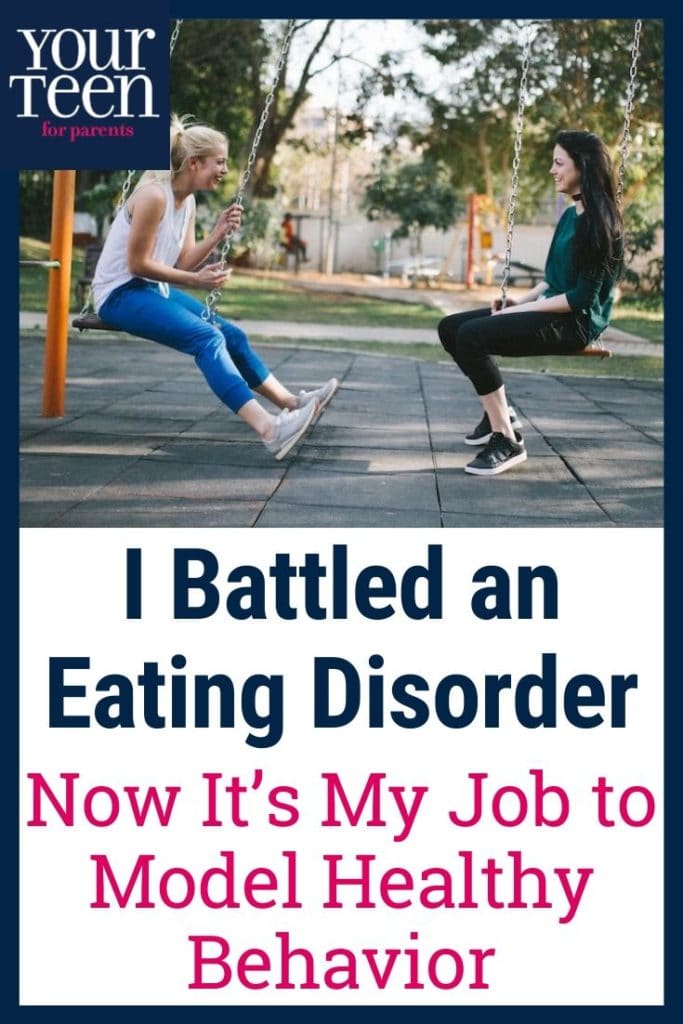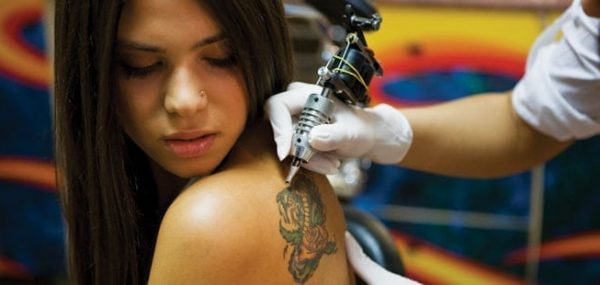During my third year of college, I slipped into a dark period of severe diet restriction and compulsive exercise. The intense phase of my eating disorder only lasted for about half a year. But the arduous journey to healthier attitudes toward eating and movement took decades.

The factors that fed my disorder were manifold:
- an attempt to exert control during the transition to self-sufficient adulthood
- social anxiety
- insecurity about my talents and abilities
- a desire to change my appearance because I thought it would make me happy (that pervasive beauty myth we’re all fed from a young age).
My eating disorder started in a socially approved way: an attempt to be more healthy and toned.
This is what makes eating disorders so difficult to detect in the initial stages. Our society normalizes and even encourages the desire to be as lean as possible.
Part of the reason I dove so deeply into my eating disorder was that I found dieting addictive. Consuming only the foods I deemed healthy felt virtuous, and losing weight made me feel like I was accomplishing important goals. As a college student competing against other well-rounded kids who had also graduated near the top of their class, I craved that positive reinforcement.
Now, while raising teen daughters (though this can happen to sons as well), I think a lot about what my parents went through trying to determine whether to be concerned about my newfound desire to run every day and eat uber-healthy foods.
My disorder co-opted my normal way of thinking and interacting. Every thought revolved around consuming as few calories as possible to survive and finding ways to burn calories I did consume. That intense focus on calories and exercise left little room for much else. I disconnected from most of my friends. I would rather be dishonest to people about my eating habits (“Oh, I already grabbed lunch”), than let them have insight into my disordered patterns of thinking.
There is a genetic component to eating disorders. I worry about my own kids becoming obsessed with restricting their caloric intake and over exercising. I try to be as mindful as possible of food rules my kids develop. And I surreptitiously monitor their diets as much as I can.
I don’t comment on their eating (whether it seems to be too little or too much); I just try to get a handle on whether or not they seem to be eating well and are eating without fear.
When one of my daughters began focusing on eating a more healthful diet, I took her to a dietician. Together, we talked about the nutrients she needs to function well and reach her potential in academics and athletics.
As a parent, I knew I needed to think about the messages I was sending about food and our bodies. Before my kids were even born, I decided to stop making fat-phobic comments or judgments about foods being “bad” or “good.” I promised myself to never again say the things that had become ingrained in conversation. Statements like, “I feel fat,” “I look bloated,” or “These pants make my butt look big.”
Yes, I may not be able to prevent an eating disorder, but I can model having a healthy body image. And I avoid making statements about my appearance and others. I can reinforce the importance of exercising for the joy of moving my body instead of as punishment for what I’ve eaten. I can feed myself well and take good care of myself each day. And I can enjoy “treats” without expressing fear they will make me gain weight.

And here’s the amazing outcome: when I stopped making negative comments to myself about my body and about what I ate, I stopped thinking those negative things. I started feeling a little better about myself. By focusing less on food and my weight, I’m not only helping my kids develop healthy attitudes toward food and their bodies, I’m keeping myself in recovery.





